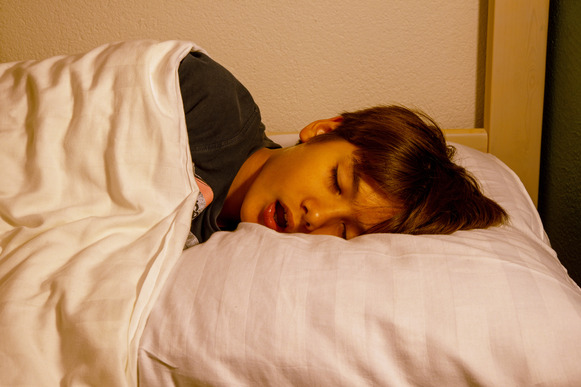
When we think of sleep apnea, the image that often comes to mind is of an older, overweight adult struggling with heavy snoring and disrupted sleep. However, sleep apnea is not just an adult condition – children can also suffer from this sleep disorder. Continue reading to learn about the causes, symptoms, and treatment options for pediatric sleep apnea.
What is Sleep Apnea?
Sleep apnea is a condition characterized by repeated interruptions in breathing during sleep. These interruptions (or apneas) can last for several seconds and may occur several times throughout the night. Obstructive sleep apnea (OSA) is the most common form, occurring when the muscles at the back of the throat fail to keep the airway open.
Recognizing the symptoms of sleep apnea in children is essential, as early intervention can prevent complications. Common symptoms include:
- Loud snoring
- Pauses in breathing
- Restless sleep
- Behavioral issues
- Bedwetting
What Causes Sleep Apnea in Children?
Several factors can contribute to the development of sleep apnea in children:
- Enlarged Tonsils and Adenoids – The most common cause of obstructive sleep apnea in children is enlarged tonsils and adenoids, which can block the airway during sleep.
- Obesity – Excess weight can contribute to sleep apnea as fatty deposits around the airway can obstruct breathing.
- Genetic Factors – Conditions such as Down syndrome can increase the likelihood of sleep apnea due to structural abnormalities in the airway.
Treatment Options for Sleep Apnea in Children
The treatment for pediatric sleep apnea depends on its underlying cause. If enlarged tonsils or adenoids are the culprit, a tonsillectomy or adenoidectomy may be recommended to remove these tissues and open up the airway.
For children who do not benefit from surgery or have other causes of sleep apnea, CPAP therapy can help keep the airway open during sleep by delivering a constant stream of air through a mask. Oral appliance therapy is an effective alternative that works by repositioning the jaw or tongue forward, keeping airways open and helping your child to breathe easier while sleeping.
About the Author
Dr. Bernard L. Greenbaum earned his dental degree from Georgetown University School of Dentistry. He has pursued continuing education in specialized areas such as sleep apnea and snoring treatment. As a member of the American Board of Dental Sleep Medicine and other professional organizations, Dr. Greenbaum is well-equipped to provide expert care. If you suspect your child has sleep apnea, don’t hesitate to book an appointment for an official diagnosis. Contact our office today via our website or call (301) 530-3600.
